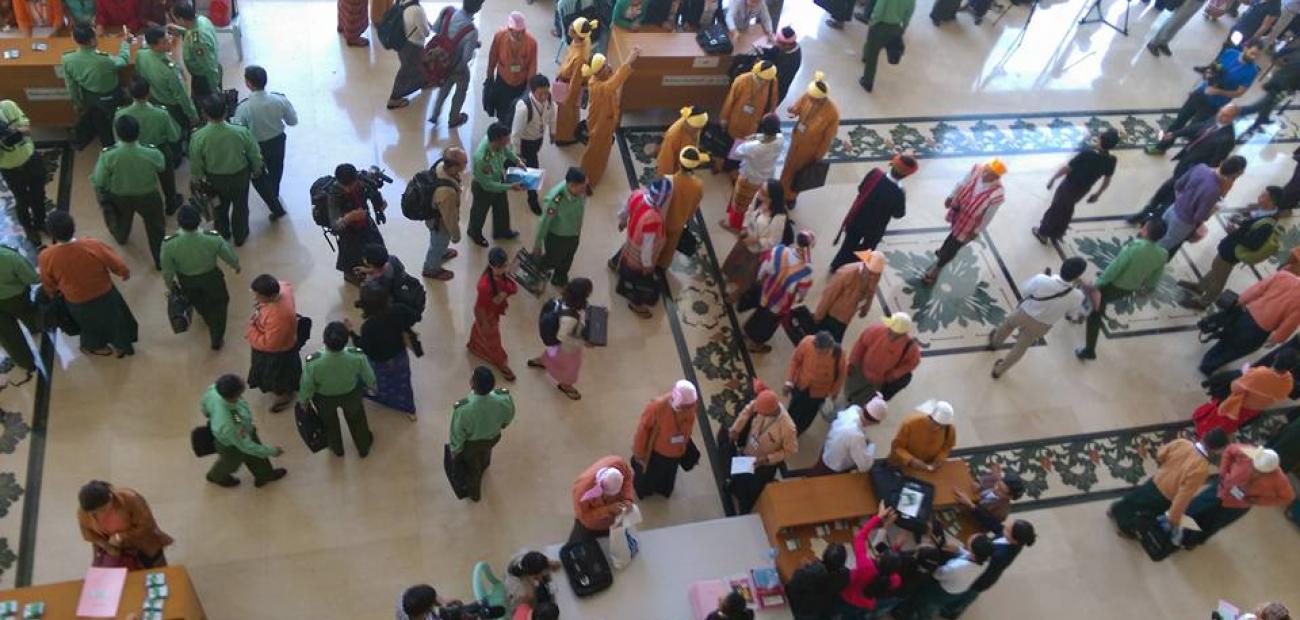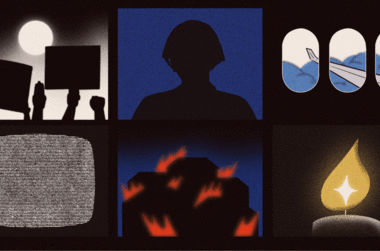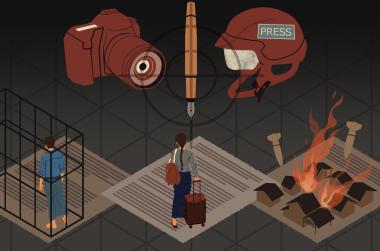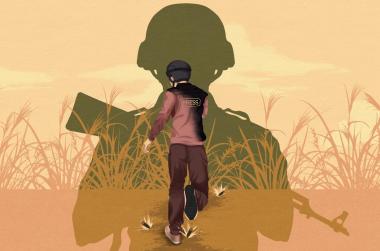The writer is a journalist in Central Myanmar who is receiving support from The Kite Tales to write these diaries.
February 1, 2016
It was the opening day of Myanmar’s new Hluttaw (parliament) with a new government led by Aung San Suu Kyi and I was really excited. Not only was I visiting the place for the first time, I was also reporting on events that day.
After passing the checkpoint, I caught a shuttle bus, which took me across the vast parliament complex and dropped me in front of the main building.
Inside was a hive of activity, with hundreds of new members of parliament arriving to take their seats as well as many local and foreign reporters, who were there to record the event. I remember the question most frequently asked in interviews that morning was: who would become the president and who might be in the cabinet? While Daw Aung San Suu Kyi was barred from becoming the president, it was well-known that an ally of hers was likely to take that role.
Everything I saw was new. As I rushed around reporting on the day, I noticed many other journalists who I had never even seen before.
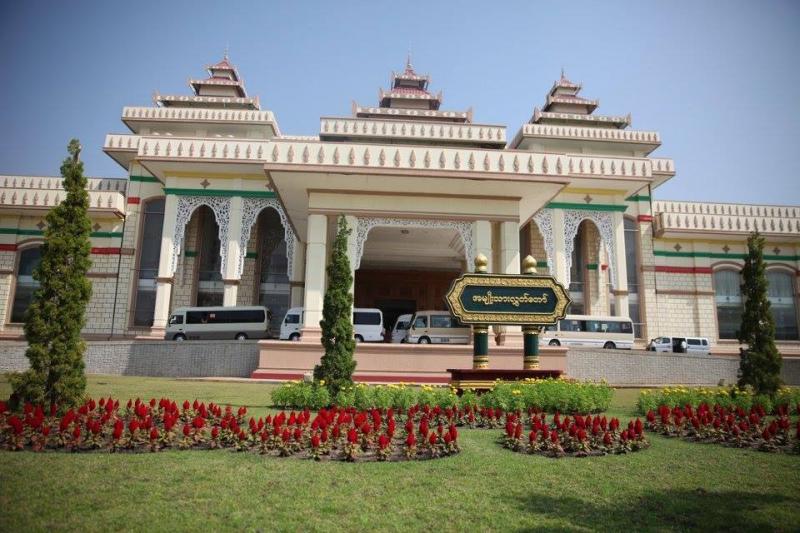
February 1, 2021
The five years since that first day reporting on the parliament passed so quickly.
I again felt nervous excitement ahead of the opening of parliament, but this time it was partly because there were rumours of a military coup.
I was pregnant and went to bed early that night. But in the morning, my husband woke me up and told me we had lost telephone and internet connection. He suspected something was up and went out on a motorcycle to see what was happening outside.
By the time he returned, there were reports that large numbers of military vehicles and security forces had taken position at the municipal guesthouse in Naypyitaw, which was hosting the largest number of parliamentary delegates.
That was when I learned of the coup. At first I couldn’t believe it, I thought it was impossible.
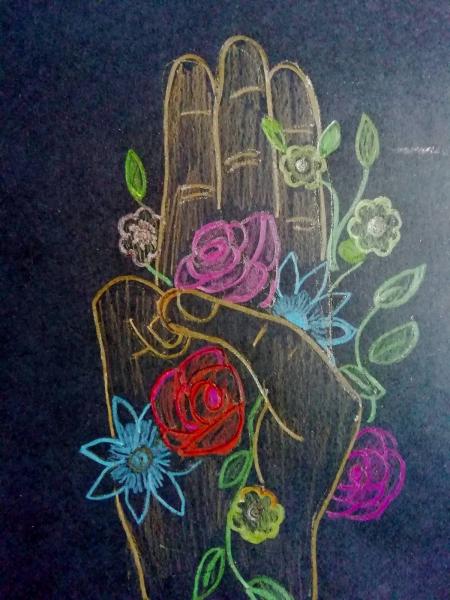
Within days, people started protesting and soon there were nationwide demonstrations. I could not stay at home. I went out to see what was happening on the streets. I gathered news. I took photos.
After security forces shot 19-year-old protester Ma Mya Thwe Thwe Khaing in the head and killed her, my family felt the situation had become too dangerous and persuaded me not to go out reporting anymore. It had already become difficult for journalists to cover the protests freely because the military was targeting them. News of reporters being arrested in the field was commonplace.
A month after the coup, the military raided the home of a correspondent for the Democratic Voice of Burma (DVB) at night and arrested him. Soon after, it revoked the licenses of media outlets Myanmar Now, 7 Day, DVB, Mizzima and Khit Thit. They also sued The Irrawaddy news website under Article 505 (a) of the Penal Code. This outlaws any statement likely to cause military personnel to mutiny or to disregard their duties and carries up to three years in prison. That same month, two Naypyitaw-based journalists, from BBC Burmese Service and a former Mizzima correspondent, were arrested.
Journalists were fleeing with their families, or leaving their homes and going into hiding.
I had already stopped reporting. But I also couldn’t leave because I was pregnant. I had to survive the insecurity together with my family.
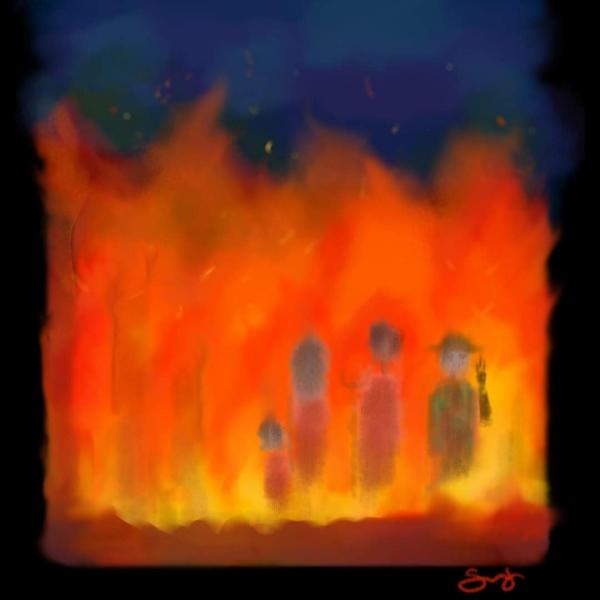
The coup was a tragedy for the country. It also affected every aspect of our lives. I stopped my work and my husband lost his job because his company shut down.
We faced financial difficulties and worried about the cost of childbirth. The COVID-19 pandemic and the military coup made it really challenging for us even to seek medical care. I can’t even describe my terror when at one point I was rushed to hospital fearing I would lose my baby.
Even after giving birth, all the difficulties that stemmed from the health and political crisis meant we have not been able to laugh freely, let alone go outside or travel. There are security forces with guns on the streets near our home. I don’t feel safe even when I am indoors.
This experience is not unique to our family, it is something that people across the country are going through.
Although I wonder if the feelings of journalists - who can no longer talk proudly about their profession - are even more painful. Some of my friends and former colleagues who continue to report are doing so after seeking asylum in other countries. Some are working from borders and liberated areas. The remaining journalists in the country have turned to whatever work they can find; farming, selling products online, working as couriers, or even opening restaurants. But I’m not hearing of anyone who’s doing particularly well.
The year since the coup for me has been a year of staying at home, taking care of the baby and overcoming the difficulties that came my way. I’m working on building up my strength, so I can survive these dark times.

